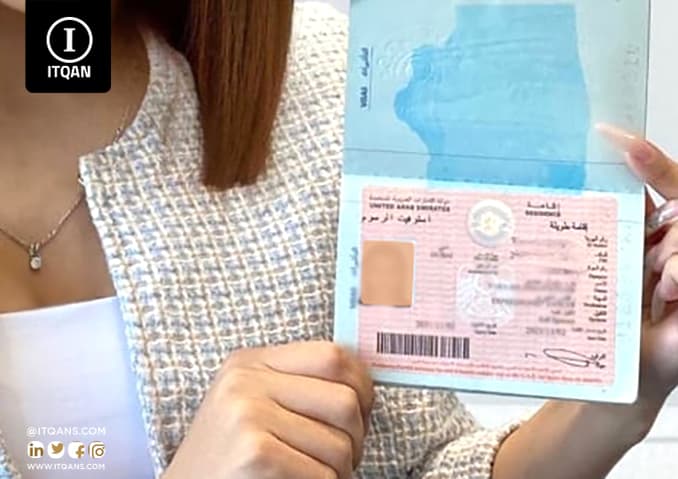Establishing a company in Dubai at the lowest costs can be a smart strategic move for ambitious businessmen, as Dubai provides an advanced economic environment that encourages growth. Dubai is considered one of the most prominent investment destinations in the world, thanks to its advanced infrastructure, easy trade laws, and significant government support for startups. Understanding the steps to establish a company in Dubai at the lowest costs can help investors achieve their goals with minimal financial risks.
Dubai is considered one of the most prominent global destinations for entrepreneurs and investors looking to establish their companies in a distinguished business environment. Dubai enjoys a strategic location that combines East and West, and provides advanced infrastructure, in addition to supportive investment legislation that gives companies of different sizes and sectors the opportunity to grow and prosper. Establishing a company in Dubai is a strategic step that opens up broad horizons for you to achieve success in a growing global market.
Establishing a company in Dubai is a relatively simplified process thanks to the simplified government procedures and great support from the relevant authorities. Dubai offers multiple options for establishing companies, whether they are sole proprietorships, limited liability companies, or companies in free zones, allowing entrepreneurs to choose the structure that suits the nature of their business activity.

Steps to establish a company in Dubai at the lowest costs
جدول المحتوى
ToggleEstablishing a company in Dubai
Establishing a company in Dubai is one of the important steps taken by many entrepreneurs and investors from all over the world, due to the encouraging investment environment and advanced infrastructure provided by the emirate. Dubai is distinguished by its strategic location linking East and West, making it a global commercial center. It also has a solid legal system and a dynamic business environment that guarantees investors the highest levels of support and flexibility.
To start establishing a company in Dubai, you must first determine the type of company and business activity you want to practice. The types of companies vary between individual companies, limited liability companies, public and private joint stock companies, in addition to free zone companies. Choosing a business requires careful study of the local market and understanding current needs and trends.
After choosing the type and activity, you must choose a trade name that complies with local laws and submit a request to reserve it. It is necessary to prepare the necessary documents such as the company’s articles of association and articles of association, in addition to submitting copies of the passports of shareholders and directors. These documents are submitted to the Department of Economic Development in Dubai or to the competent authority in the selected free zone.
One of the most important advantages of establishing a company in Dubai is the wide opportunities provided by free zones, as these zones offer many tax advantages, including exemption from taxes on income and profits for a period of up to 50 years, in addition to full foreign ownership of the company without the need for a local partner.
Steps to establish a company in Dubai
Establishing a company in Dubai requires following specific steps to ensure compliance with local laws and achieve business success. Here are the main steps to establish a company in Dubai:
1. Determine the type of business activity
Determining the type of business you intend to engage in is the first step. This helps determine the type of license required and the authorities concerned with issuing the license.
2. Choosing the legal structure of the company
Determine the legal structure of your company such as limited liability company (LLC), sole proprietorship, or free zone company. Each type has different legal and financial requirements.
3. Choose a company name
Choose an appropriate name for the company and ensure that it complies with the company naming rules in Dubai. The name must be unique and not contain any prohibited terms.
4. Submit an application to obtain a license
Apply for a business license with the Department of Economic Development (DED) in Dubai or the competent authority in the chosen free zone.
5. Preparing legal documents
Prepare the required documents such as the company’s articles of association and articles of association. Some types of businesses may require additional documentation such as a business plan or financial projections.
6. Obtaining initial approvals
Submit a request to obtain initial approvals from the relevant authorities. This includes the approval of the Department of Economic Development and any other parties related to the business activity.
7. Determine the company’s location
Choose a suitable location for the company and rent office or commercial space. The site must comply with business licensing requirements.
8. Open a bank account
Open a company bank account in a local bank in Dubai. You will need to provide company documents and registration certificates to open the account.
9. Obtaining the final license
After completing all procedures and obtaining the required approvals, submit an application to obtain the final commercial license.
10. Registration in the Dubai Chamber of Commerce
Register your company with the Dubai Chamber of Commerce and Industry to obtain Chamber membership, enabling your company to benefit from the Chamber’s services and business support.
11. Registration with the Immigration and Passports Department
If you plan to employ foreign employees, you will need to register your company with the Passports and Immigration Service to obtain the necessary work permits.
12. Obtain health insurance
Make sure your employees are insured with health insurance, as it is legally required in Dubai.
13. Compliance with tax requirements
Although Dubai has a favorable tax regime, make sure to comply with any other tax requirements that may be relevant to your business.
14. Preparing the infrastructure
Make sure your office or business site is equipped with the necessary infrastructure such as internet, furniture and equipment needed to run your business effectively.
15. Commencement of business operations
Once you complete all the above steps, you can officially start business operations in Dubai.
Documents required to establish a company in Dubai
Establishing a company in Dubai requires submitting a number of basic documents to ensure legal compliance and obtaining the necessary licenses. Here is a list of basic documents you may need when establishing a company in Dubai:
- Copy of passport for shareholders: A copy of the passport must be provided to each of the company’s shareholders.
- A copy of the shareholders’ national ID card: If one of the shareholders holds Emirati citizenship, a copy of his or her national ID must be submitted.
- Commercial license application form: The commercial license application form required by the Dubai Department of Economic Development or the chosen free zone regulating body must be completed and signed.
- Memorandum of Association: This is the document that defines the company’s structure and the rights and obligations of shareholders. Must be submitted for registration.
- Articles of Association: This explains the company’s internal regulations and the method of its management, and must be prepared in accordance with local laws.
- Certificates of education and experience (for key directors and officers): Some types of companies may require the submission of certificates proving the education and experience of key directors or officers.
- Office lease or lease contracts: A copy of the office lease contract or ownership certificate for the property in which the company will be established must be submitted.
- An initial financial report or business plan: You may be required to submit an initial financial report or business plan that explains the company’s financial goals and expectations for the coming years.
- Shareholder signatures on official documents: Official documents such as the memorandum and articles of association must contain the signatures of all shareholders.
- Health Insurance Certificate: Your company needs a health insurance certificate for employees, which is legally required in the UAE.
Costs of establishing a company in Dubai
Costs of establishing a company in Dubai vary based on the type of company, location, and services required. Here’s an overview of the main expenses that may be covered:
- License and registration fees: These include the costs of submitting applications to obtain commercial licenses from economic departments or relevant bodies, and registering the company in commercial registries.
- Legal consultation costs: You may need advice from an attorney or legal advisor to assist in preparing legal documents and ensuring compliance with local laws.
- Office and infrastructure costs: These include renting an office for the company and equipping it with the necessary furniture and equipment, in addition to infrastructure costs such as communications and the Internet.
- Costs of opening a bank account: The company may require opening a bank account in the UAE to manage financial operations, which includes account opening fees and minimum deposits.
- Insurance costs and guarantees: These may include the costs of insurance for employees and property, and the guarantees required to obtain some licenses and contracts.
- Chamber of Commerce registration costs: You will need to pay a registration fee to join your local chamber of commerce and industry.
- Tax costs: In the UAE, Dubai has a favorable tax system, but potential tax costs and compliance with tax requirements must be considered.
- Consulting and management costs: You may need to hire consulting or management services to help you start and run the company.
Licenses required to establish a company in Dubai
To establish a company in Dubai, the licenses required vary depending on the type of company and the chosen business activity. Here are some basic licenses you may generally need:
- Business license: You must obtain a license that allows you to practice the chosen business activity. This license is usually submitted to the Department of Economic Development in Dubai or to the competent authority in the free zone of your choice.
- Company license: The establishment of each type of company (such as joint stock companies, sole proprietorships, companies in shares) requires submitting a company license to the relevant authority. This usually includes the company’s articles of association and articles of association.
- Profession or skill licenses: If the company’s activity requires a special profession or skill, you may need an additional license from the competent authorities. For example, a medical or engineering license if the company provides services in these fields.
- Building and planning license: If the company involves construction or urban planning activities, you may need a special license from the local area authority or other regulatory body.
- Environment and health licenses: Some industrial and manufacturing activities may require special licenses to comply with environmental and health standards, which must be obtained from the competent authorities.
- Tourism and Hospitality License: If the company operates in the tourism and hospitality sector, it may need special licenses from the local tourism authority.
- Advertising and Marketing License: Some companies that rely on advertising and marketing may require a special license to carry out these activities in the appropriate legal form.
To conclude an article about establishing a company in Dubai , we can focus on the importance of appropriate steps and good planning in this process, which is a crucial beginning for business success in the emirate. Establishing a company in Dubai is not just an administrative procedure, but rather a strategic investment that requires careful study and knowledge of the local economic environment and the opportunities it provides.
Dubai has proven itself as a preferred destination for investors globally, thanks to its advanced infrastructure, encouraging government policies, and flexible business environment. By taking advantage of the strategic business outlets and tax exemptions available in free zones, investors can build a sustainable and thriving business in Dubai.
The most frequently asked questions about establishing a company in Dubai
What types of companies can I establish in Dubai?
You can establish a limited liability company (LLC), a sole proprietorship, a free zone company, or a subsidiary of a parent company.
What financial resources are needed to establish a small business in Dubai?
Entrepreneurs must plan seed financing that includes the capital needed for establishment and initial operation for a certain period until the company starts generating profits.
What is the most appropriate business license for my economic activity?
The appropriate commercial license must be chosen according to the type of activity carried out by the company, whether commercial, industrial, or service.
What are the guarantees required to obtain a commercial license in Dubai?
Some types of businesses may require financial guarantees or bank certificates as part of the licensing process, and this varies based on the type of business.
What are the tax procedures required for companies in Dubai?
Dubai has a favorable tax system, but companies must comply with tax declaration requirements and submit tax reports regularly.

















